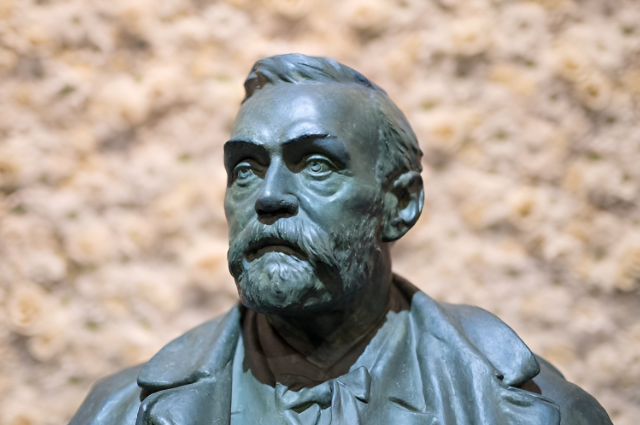Today, the Nobel Prize stands as the pinnacle of recognition in various fields worldwide, granted to those who have made significant contributions to the betterment of humanity. The visionary behind this esteemed award was none other than Alfred Bernhard Nobel. On December 10, we reflect on the enduring legacy of Alfred Bernhard Nobel, the visionary behind the renowned Nobel Prizes. Established as the most prestigious recognition in various fields globally, the Nobel Prize stands as a testament to individuals who have significantly contributed to the betterment of humanity.
Alfred Bernhard Nobel is a prominent man from Sweden with a diverse range of talents encompassing chemistry, engineering, invention, business, and philanthropy. Nobel's impact on science was profound, with an impressive lifetime tally of 355 patents. Tragically, Nobel's life came to an end in 1896 due to angina pectoris and cerebral hemorrhage at his villa in San Remo, Italy. At the time of his demise, he presided over a vast business empire comprising more than 90 factories dedicated to the production of explosives and ammunition. However, it was the unveiling of his will, stored in a Stockholm bank, that would surprise his family, friends, and the public at large. In a twist that defied expectations, Nobel's will outlined his desire for his wealth to be utilized in honoring individuals committed to advancing science, literature, and peace. Following his passing on December 10, 1896, the Nobel Foundation was established by Ragnar Sohlman and Rudolf Lilljequist to execute Nobel's wishes faithfully. The foundation began awarding prizes in the fields of Physics, Chemistry, Medicine, Literature, and Peace, reflecting Nobel's enduring interests and contributions.
Alfred Nobel, born in 1833 to a family that esteemed education and business acumen, was inspired by his father to pursue chemical engineering. This led him to become an industrialist credited with the invention of dynamite by adding sediment to nitroglycerin. Nobel's inventions regarding dynamites, artificial silk, and the rocket camera, drew criticism, labeling him a "merchant of death." Stricken by this perception, Nobel, an associate of Countess Bertha von Suttner, a prominent Austrian pacifist and later a Nobel Peace Prize laureate, desired redemption through his commitment to peace.
Evidence suggests that Nobel's friendship with Countess von Suttner played a pivotal role in inspiring the establishment of the Nobel Peace Prize. Additionally, he hired former diplomat Aristarchi Bey to keep him informed on matters of international peacekeeping. Despite the controversies surrounding his inventions, Nobel's life included founding industrial companies across the globe, some of which endure in Great Britain, France, and Norway.
Nobel's creative spirit extended beyond industry, encompassing significant engagement in creative writing and advocacy for peace and social issues. Far from being defined by any single aspect of his life, Alfred Nobel's legacy is a testament to a complex individual whose contributions spanned invention, industry, literature, and a passionate commitment to peace.
Despite the potentially lethal nature of his inventions, Nobel maintained close correspondence with peace activists of his time. In his last will, Nobel allocated the majority of his fortune to establish the Nobel Prize, emphasizing his belief that humanity's progress lies in knowledge, science, and humanism. The enduring legacy of these prizes serves as an enduring reminder of Nobel's vision to recognize and reward discoveries that bring the greatest benefit to humankind.
. . .
References:

